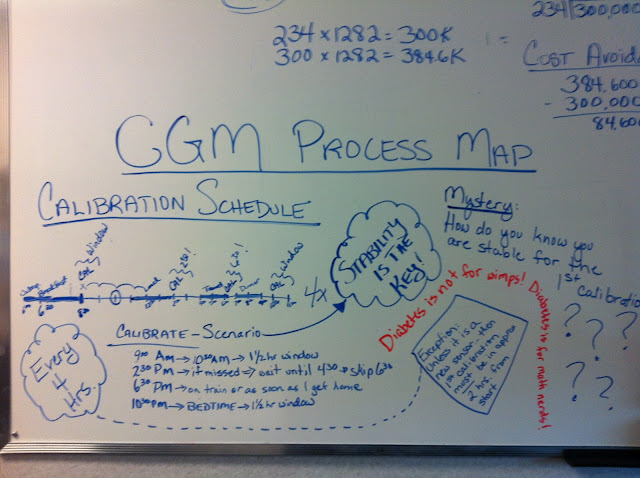So I've been waiting. I continue to wait. I've been playing a waiting game.
I also want to be high. No, I'm not a junkie. Unless you count insulin as my drug of choice. This is one of the requirements of this waiting game.
But the high I'm referring to is for my blood sugar levels.
Now you're thinking, that doesn't make sense. Who wants to be high? Doctors and medical professionals everywhere warn of the perils that manifest themselves when your blood sugars are high.
Mythbusting alert: sometimes complications can manifest themselves despite good management of blood sugars.
Now I'm not saying that I want to be in the stupid high range. High-normal range is good enough. I just don't want to slide into low territory, for this may have a price that I'm not willing to bear - which is the ability to drive for months to come.
So let me tell you a story. It's not a pretty one, and I'll try not to bore you with the extraneous details.
Back in June, I had a driving "incident". Or maybe I should call it an "event". Whatever it was, I had a devastatingly low (blood sugar) while I was driving. Although I didn't test immediately before driving, I wasn't thinking (mistake #1) because I was high not 1 hour before.
Now I did bolus at the time, however my history had been that once high, I tended to be stuck there. However what transpired was a perfect storm of a (possible) misbehaving pump (the manufacturer subsequently replaced the pump due to some "inconsistencies"), a misbehaving pancreas, and
hypoglycemic unawareness. Perfect. While the manufacturer immediately replaced the pump, I just wish the rest was as easy to replace.
As I am here today, writing this blog post, and the fact that many of you have seen me out and about the interwebs, it has had a good ending. I wasn't hurt, no one else was hurt, there was no damage to our brand new car or anything else. This just created a tremendous concern that something had to be fixed, so I spoke to my medical team.
And, subsequently the event was reported to the Ministry of Transportation by my endocrinologist, and my license was suspended. I shared my story with her in the hope that she could help this from happening again. Silly me, for I discovered that telling the truth about what happened only served to take a tremendous toll on me and on our family.
The loss of my license has changed how I conduct my life. We live in a small town with no public transit, this has been problematic. The train that I take to get to work everyday is on the other side of town. Too far to walk. I now rely on my daughter, my friends, my neighbours, and yes, I'm walking a lot more. That is good, however, it has been a tremendous loss of independence.
It is important to me to restore life the way it was. Except for that driving while low part. I have a spiffy new pump/CGM (continuous glucose monitor) combo that tells me all about my lows, and will even suspend insulin if I ever do go low… not that I expect to given the fact that I will act immediately upon hearing such low alarms.
Well, this is where it gets kind of murky. The Ministry requires my endo to report a bunch of stuff about me, including all lows, over the course of 30 days.
So what is low according to the Ministry? Well, the number of incidents of 4.0 mmol (72 mg) or less must be reported. No regard for time of day - just how many. No explanation that something happened while cutting the grass or vacuuming the house. So I think that if I just stay on the high side for one month, that will be good enough.
Unfortunately, it appears that my DTeam and I are on different pages. On 3 separate occasions, adjustments to my pump settings have actually resulted in lows. I realized none-too-quickly that my team was making adjustments to my basals based on my CGM data. Everyone (except my team apparently) knows that you don't do this. It reports trends, but it is far from perfect. This is a CGM newbie mistake. I shared with my team. However, there was no apology and no accountability.
So will my numbers be strong enough to report them to the Ministry? Only my endo will be able to determine this at my appointment next week. And if she submits it, I will wait for 6 weeks to hear back from the Ministry. If not, I guess the 30 days could start again. All going well, I might have my license back in time to visit family for Christmas. If not, well...
The good news is that I now have a pump/CGM system that will help me to manage this stupid disease better. That's a good thing. I know this.
So in the end, I continue to wait. I've been lining up my ducks, getting them all in a row. And now I'll wait some more.








